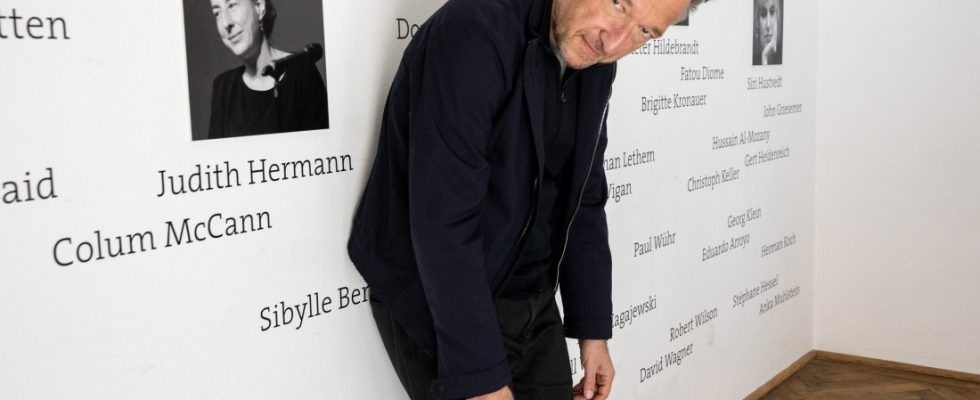At the beginning Lukas Bärfuss is flattened. Well-informed and articulate, he was introduced to the Literature House by director Tanja Graf and presenter Dieter Hess as a future literature festival curator and as a Büchner Prize winner with a great work. And now he’s supposed to explain off the top of his head whether he sees it as his job to describe human suffering? “Hoi! Grüezi, Munich!” the writer gets some air with the unmistakably soft Swiss tongue. And thanks for the gift of finding a large “community of readers” in the hall.
Bärfuss immediately wins over this community with humor and serenity; with a careful choice of words that always conveys an sense of urgency, with undisguised open sentences that, in their clarity and superficial simplicity, always aim for the big picture. Of course, Bärfuss still answers in detail when asked about his job, which he would not describe as such. He circles his approach more like this: “I try to orient myself in the world in which I live – and I often don’t succeed at all.”
Because what drives him is the injustices, the wrong language, the regression in society. He processes this in his books with a “certain ruthlessness” that can spoil the “breakfast mood”. Because he demands an attitude, an argument, with questions like: “How do you feel about this world in which you live? How do you want to live? And what prevents you from doing so?”
Bärfuss does not hide the fact that these questions also concern him in his own life. He sees “my mom” in the main character Adelina of his new novel “Die Krume Brot”, who was caught in the poverty trap in the 1970s. In turn, he told his children far too late about his own failures, the homelessness of his youth. Because he has to state: “My origin lies in ruins before me.” All the “uncertain circumstances” are of course “enjoyable prerequisites for a writer’s existence”.
“I always try to go where I don’t know how to go.”
There are now many points of contact to be found in order to talk more intensively about origins and heritage and at least to briefly encircle the motto that Bärfuss chose for the Munich Literature Festival in autumn: “What we inherit, what we leave behind”. Unfortunately, the moderator is interested in something else. But anyone who is able to read between the lines can effortlessly place Bärfuss’ answers to questions about his writing in a broader context.
Because the fact that he doesn’t feel like “self-boring” can certainly not only be interpreted in terms of writing. He’s looking for a “stimulating atmosphere,” says Bärfuss, always wants to learn something, “get an experience.” It is important to create space for what he, along with Else Lasker-Schüler, calls “making room for God” – stepping back from one’s own ambition, from the will to want to control everything: “I always try to go where I don’t know , how it goes.” That is “not without risk”, leading to “terrible fears”. And yet Bärfuss keeps looking for these “zones of absolute uncertainty”. These are delightful conditions for a literary festival that shouldn’t be boring.

